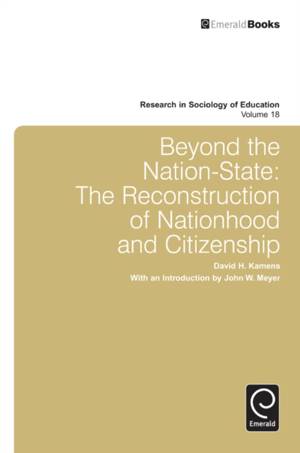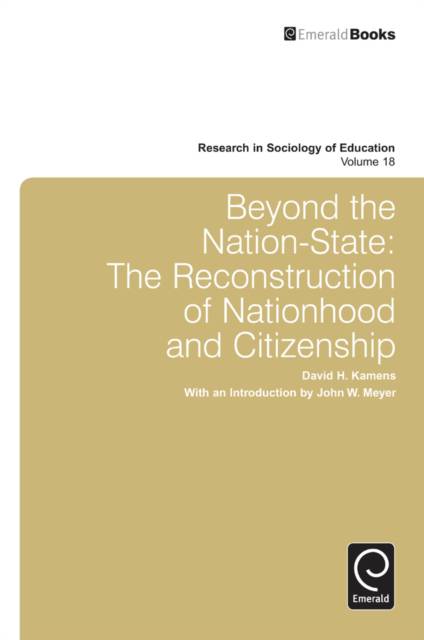
- Afhalen na 1 uur in een winkel met voorraad
- Gratis thuislevering in België vanaf € 30
- Ruim aanbod met 7 miljoen producten
- Afhalen na 1 uur in een winkel met voorraad
- Gratis thuislevering in België vanaf € 30
- Ruim aanbod met 7 miljoen producten
€ 267,45
+ 534 punten
Omschrijving
The book examines the effects of education in creating global citizens who share a world culture. This occurs within an international system that still remains decentralized, composed of independent nation-states as major actors. Prof. Kamens argues that as globalization intensifies, this system of nation-states becomes more saturated and dense with structure. Intensified globalization has produced a world society, thanks to the spread of global capitalism, education, democracy and bureaucracy. The upshot is that world culture travels quickly and produces 'recipes' for the development of an 'imagined community' that has increasing commonalities across societies. The book examines the role of education in diffusing such attitudes and models, as global citizens confront national institutions.
Specificaties
Betrokkenen
- Auteur(s):
- Uitgeverij:
Inhoud
- Aantal bladzijden:
- 379
- Taal:
- Engels
- Reeks:
- Reeksnummer:
- nr. 18
Eigenschappen
- Productcode (EAN):
- 9781780527086
- Verschijningsdatum:
- 17/02/2012
- Uitvoering:
- Hardcover
- Formaat:
- Genaaid
- Afmetingen:
- 155 mm x 231 mm
- Gewicht:
- 657 g

Alleen bij Standaard Boekhandel
+ 534 punten op je klantenkaart van Standaard Boekhandel
Beoordelingen
We publiceren alleen reviews die voldoen aan de voorwaarden voor reviews. Bekijk onze voorwaarden voor reviews.









